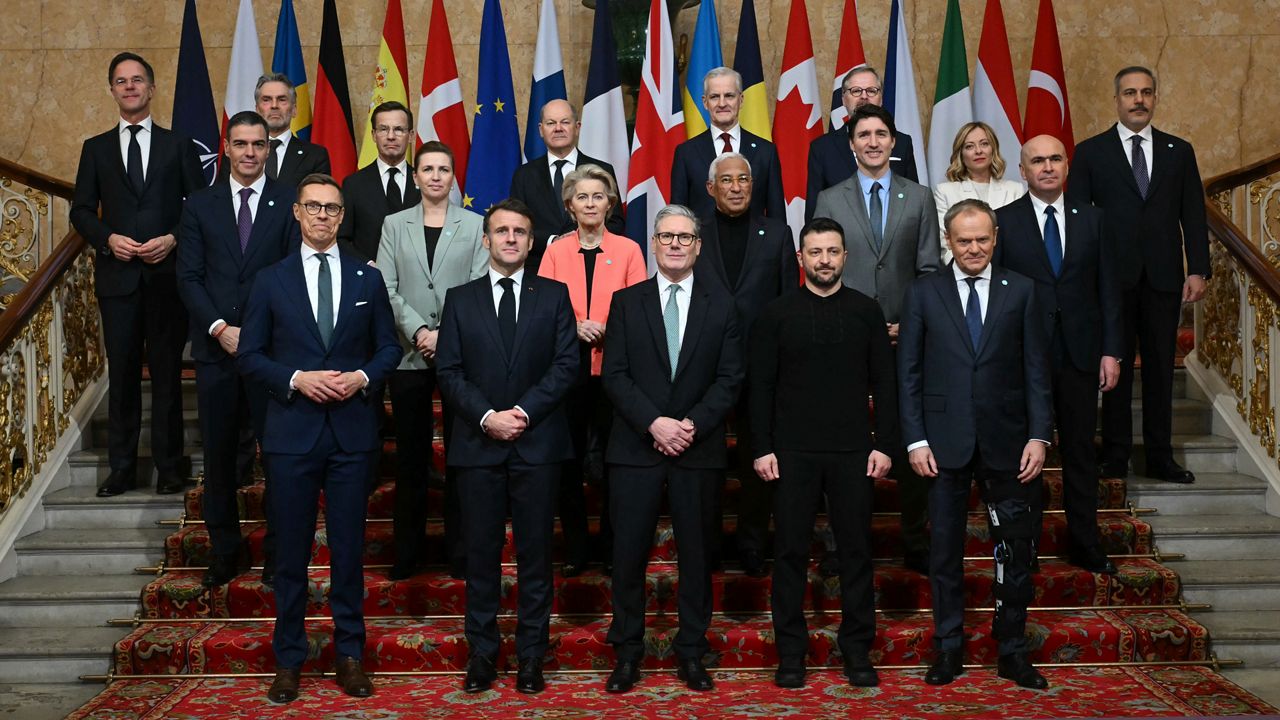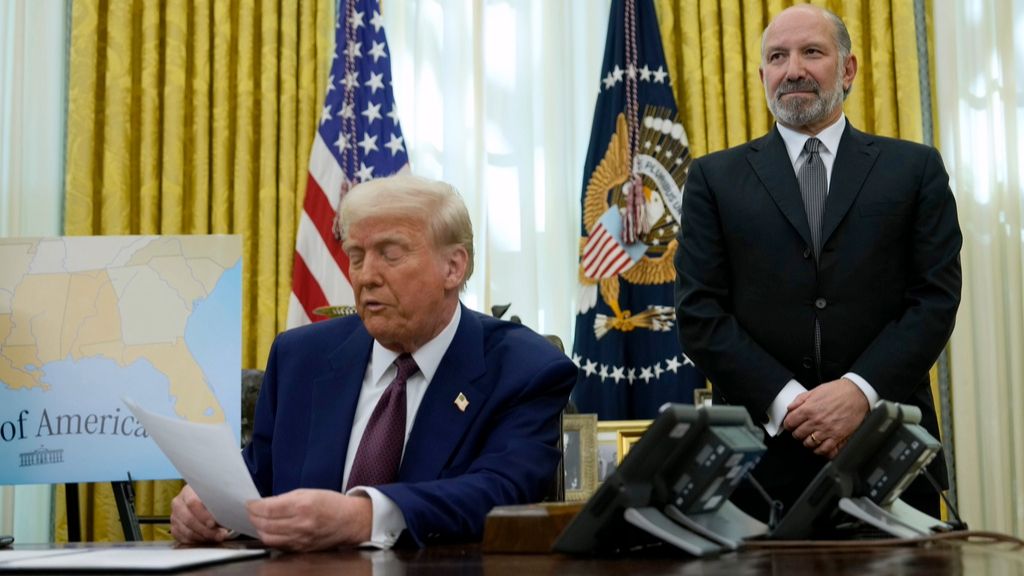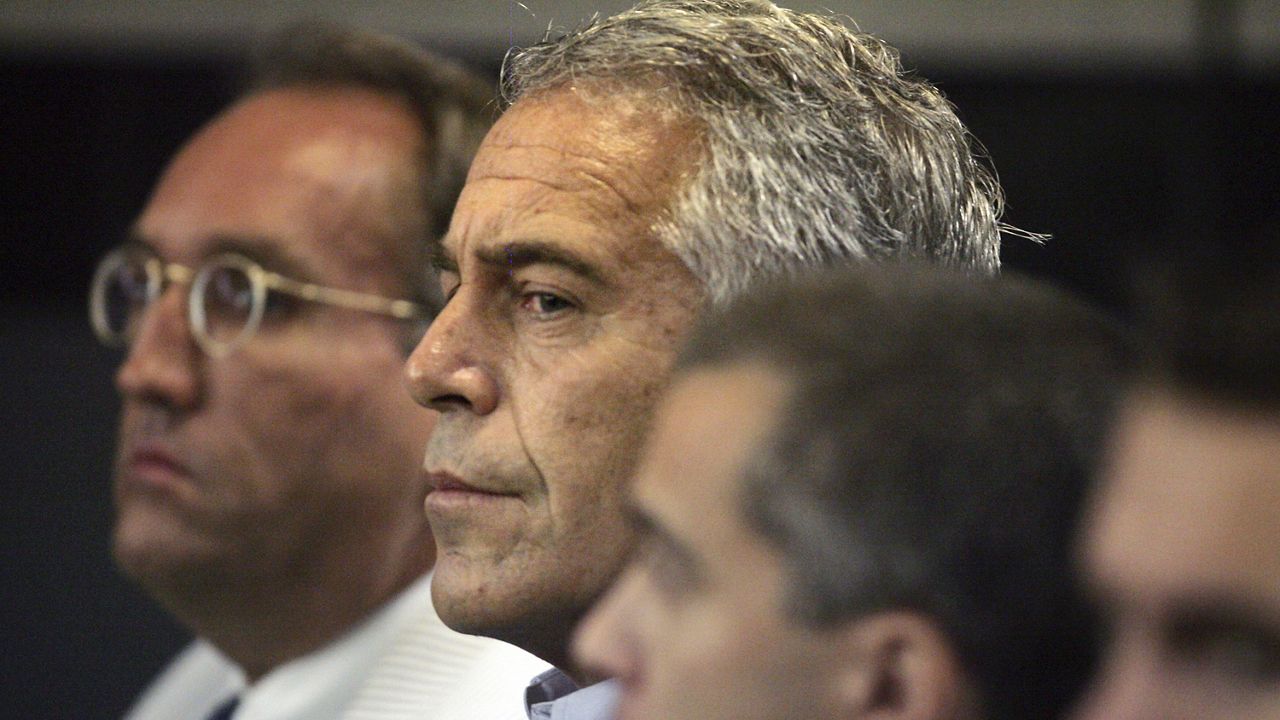With no clear strategy, no sure support and not much time left to prevent a government shutdown, Speaker Kevin McCarthy nevertheless vowed on Wednesday he would not give up trying to convince his colleagues to pass a temporary funding bill through the House.
But lawmakers watching and waiting for the beleaguered leader to deliver are looking at other options.
Attempting to rally his conference could be a nearly futile exercise -- one that could help McCarthy keep his job, but has little chance of actually preventing a federal shutdown. Whatever House Republicans come up with is nearly certain to be rejected by the Senate, where Democrats and most Republicans want to fund the government.
In one dramatic sign of defeat Tuesday, House Republicans were even voting against their own defense bill. During a rowdy afternoon vote, the usually popular bill was turned back from consideration, 212-214, after five hard-right conservatives helped sink it. They want to see an overall plan from McCarthy.
McCarthy expressed optimism on Wednesday, telling reporters at the Capitol that "the game is not over," but emphasized that lawmakers will stay in Washington on Friday and Saturday to try and get this done.
"I feel like we are" closer to reaching a deal, the California Republican said Wednesday, adding that his members have been meeting and have "been making some progress, we made some progress last night."
"We continue to work through it," McCarthy said. "I've been at this place many times before, we're going to solve these problems."
To that end, members of the House GOP have at least made progress by closing the gap on a top-line budget number for discretionary spending. According to Rep. Byron Donalds, R-Fla., that figure is $1.526 trillion — down from $1.7 trillion in FY 2023, which came as part of what he called a "broad consensus."
"And I will tell you that right now, this is a start. We have to do a lot of of belt tightening, because the future of our country demands it," Donalds told reporters.
Separately, McCarthy told reporters that his caucus had a "great discussion."
"I think we've got a plan to move forward" he added.
But with time dwindling, Congress faces a Sept. 30 deadline to pass the broader government funding legislation and get a bill to President Joe Biden's desk to become law. Otherwise, the U.S. faces massive federal government closures and disruptions. During shutdowns, most federal workers are furloughed and non-essential functions of the government are disrupted, including the processing of passport applications, food safety inspections, IRS operations and trash pickup at national parks.
When asked how confident he was that the country would avoid a shutdown, McCarthy offered a sports metaphor.
"Look, I don't know if you've ever played sports," he said. "Did you quit before the game was over? If you went into overtime, did you quit during that time too? I think this is where the most significant change happens. And that's what we're going through right now, and I'm going to stay with it and solve the problem."
But the path forward is still somewhat unclear. Florida Rep. Donalds told Spectrum News on Wednesday that he "doesn't think" that putting a short-term bill on the House floor on Thursday is going to happen.
That said, Republicans projected optimism on Wednesday that they would reach an agreement.
"I'm confident that eventually we have enough [votes] to pass something," said North Carolina Rep. Patrick McHenry, a McCarthy ally and key negotiator on the debt limit deal between the speaker and President Biden earlier this year, adding: "We were always going to have a fight about federal government funding, that was always going to be the case."
"I am encouraged to know that we are all negotiating in good faith," said California Rep. Mike Garcia. "And I wasn't sure about that yesterday when I saw a rule on a DOD bill fail."
"I'm confident that our party is going to figure this out," Garcia said, adding: "I'm more confident today than I was yesterday."
Colorado Rep. Ken Buck, a member of the far-right House Freedom Caucus, also expressed optimism about avoiding a shutdown, telling reporters: "I have absolute faith we're gonna do the right thing and the Democrats are gonna join us."
The latest House government funding proposal, a compromise between members of the hard-right Freedom Caucus and the more pragmatic Main Street conservatives, was almost dead on arrival, left sputtering even after McCarthy loaded it up with spending cuts and Republican priorities in a border security package.
McCarthy has suffered a series of setbacks this week to his plan to advance Republicans' spending plans, testing his grip on power amid calls for his ouster.
In defiance of the speaker, a group of five GOP lawmakers from the right-wing House Freedom Caucus joined with Democrats to prevent consideration Tuesday of a usually popular defense bill. The bill would provide pay raises for the troops and other measures, but Republicans want a broader discussion on spending cuts in non-defense-related budgets.
The House floor is essentially at a standstill, with no business related to the looming government shutdown being conducted, as McCarthy, of California, tries to regroup.
The speaker had hoped to rally Republicans around a stopgap bill that would fund the government for the next month as talks continue. The temporary bill would accomplish some of the conservatives' goals — by slashing many government services 8%, while sparing defense and veterans accounts.
The package McCarthy is trying to push through the House also proposes a long list of conservative policies for immigration and border security that are widely embraced by Republicans.
But the conservative holdouts also want McCarthy to commit to keeping the funding cuts in place longer, for the full year.
“Members are taking this bull by the horns, doing what leadership failed to do to try and chart a best path forward on how we can get to 218 (votes),” said Rep. Bob Good, R-Va., who is a part of the House Freedom Caucus.
As a group of GOP lawmakers huddled for another day Wednesday in the Capitol trying to work out a plan that would gain the 218 Republican votes needed for passage, others are reaching across the aisle to Democrats to try come up with a bipartisan solution.
Two centrist groups, the New Democratic Coalition and the Republican Governance Group, are having their own conversations on how to solve this impasse, according to a person familiar with the talks who insisted on anonymity to discuss them. Their groups together make up 145 members.
Rep. Annie Kuster, D-N.H., who chairs the New Democratic Coalition, said on Tuesday she was hoping that a coalition of “roughly an equal number” of Republicans and Democrats would emerge to support a continuing resolution.
“These are the people that are making public statements that a shutdown is not good for the country,” she said.
Also at stake is President Joe Biden’s request to provide an additional $24 billion in military and humanitarian aid for Ukraine in its war with Russia that some lawmakers want to add to the must-pass bills needed to fund the U.S. government.
Meanwhile in the Senate, a robust bipartisan group of senators was trying to push ahead on their own package of three appropriations bills to kickstart the process.
Senators from both parties had been trying to show strength as they prepare to negotiate with the House on government funding. But Sen. Ron Johnson, a Wisconsin Republican allied with the House Freedom Caucus, had halted the Senate's progress by raising an objection.
It will take 67 votes in the 100-member Senate to move forward on the appropriations package, but it remained unclear Wednesday whether enough Republicans would support the effort as the parties dig in for a fight.









